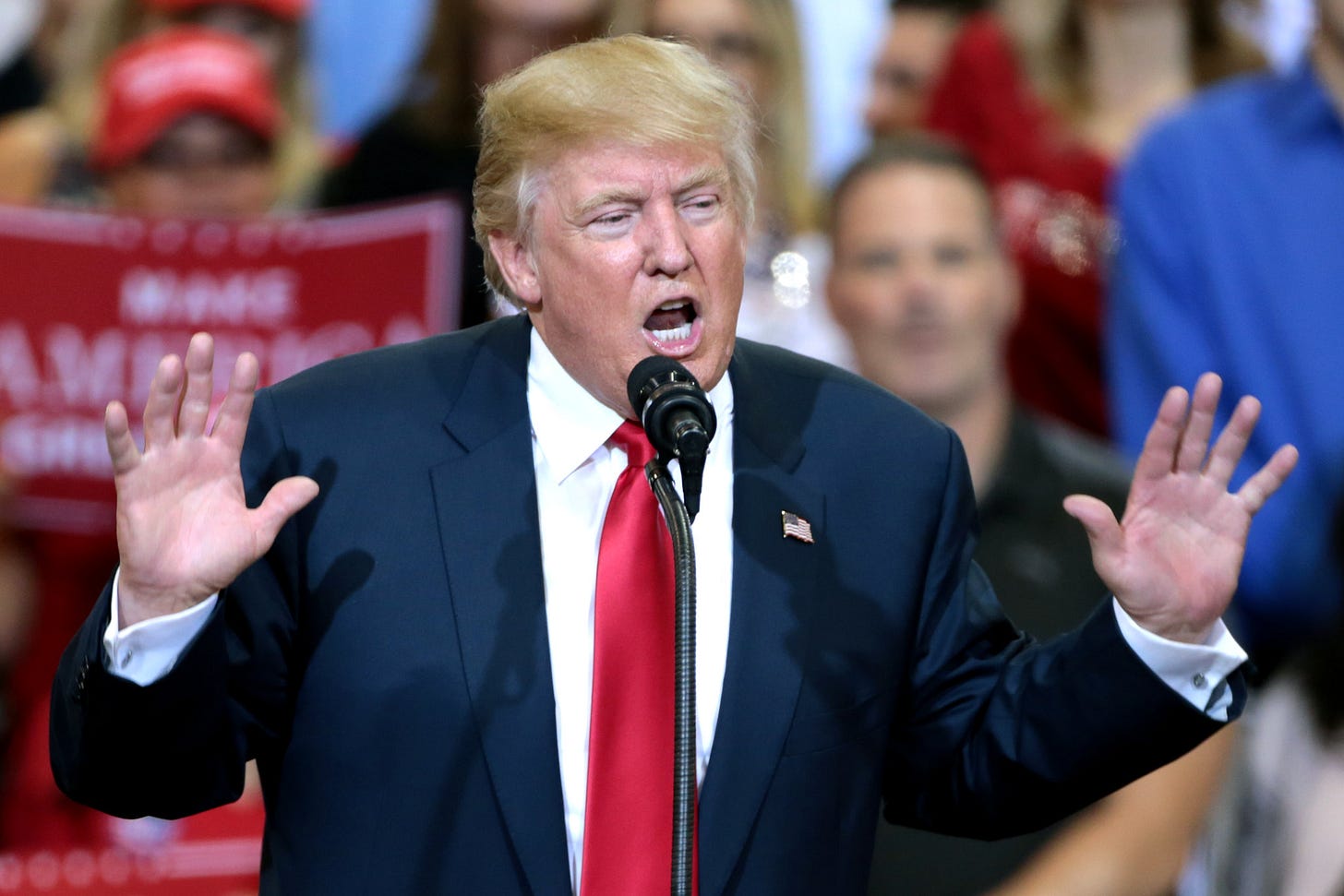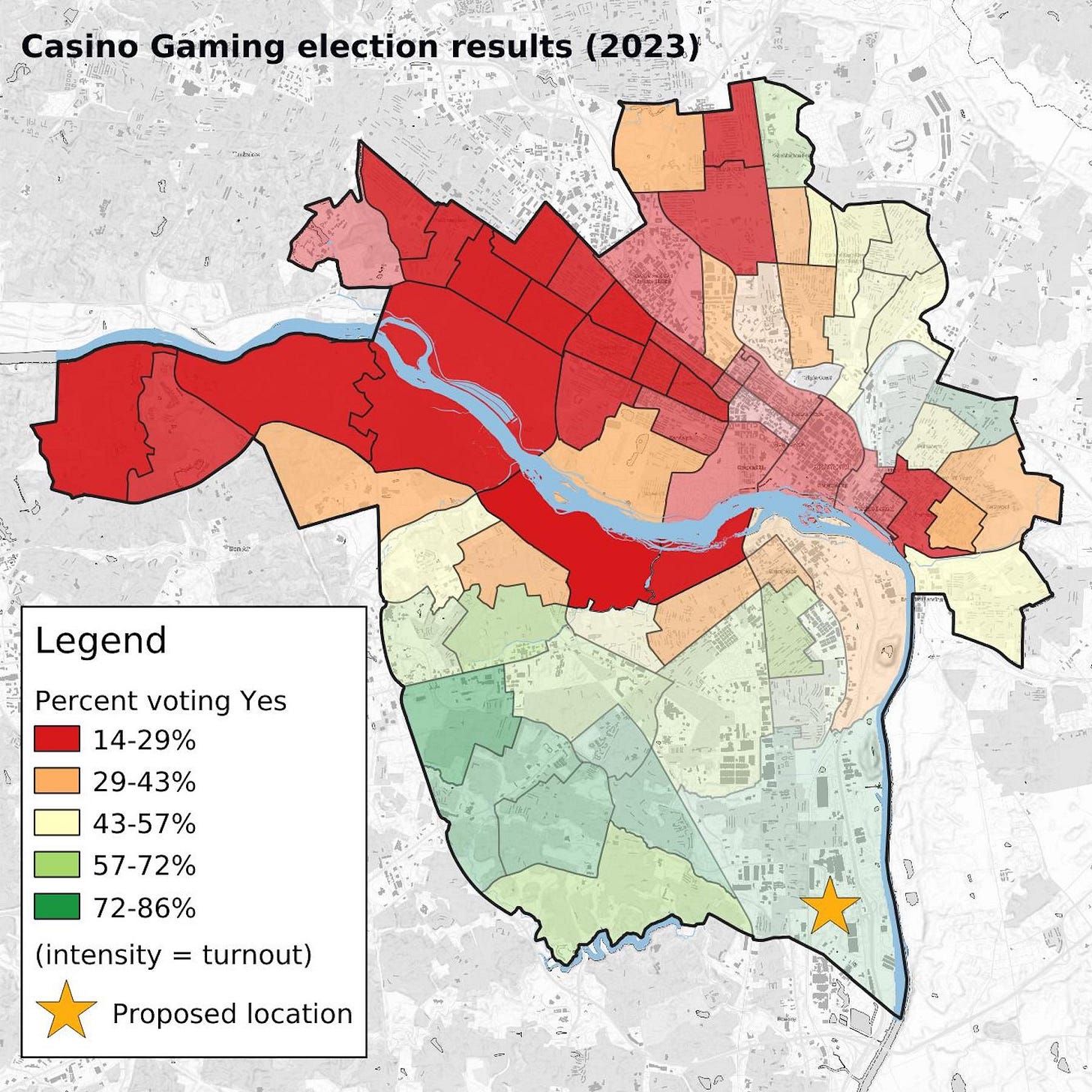How a Bold Black Firm Redefined Virginia's Political Future, Richmond Casino Vote Map Breakdown, Threat to Democracy: Trump Dominates Latest NH Poll
👊🏽 Saluting Virginia’s many veterans not just on Veterans Day but all year long.
👨🏽💻 Vote turnout numbers in Virginia for the 2023 cycle.
How a Bold Black Firm Redefined Virginia's Political Future
In a historic turn of events that has redefined Virginia's political narrative, the efforts of Former Delegate Michael Futrell and Phil Thompson have proven to be nothing short of revolutionary. Their firm, Diverse Engagement, played a pivotal role in the challenging journey toward nonpartisan redistricting, culminating in a seismic shift in the racial makeup of the Virginia General Assembly.
The critical moment came in 2020 when OneVirginia2021, an organization advocating for fair redistricting, teamed up with Diverse Engagement. Their mission was to lobby for a constitutional amendment that faced a precarious path through the General Assembly, narrowly passing with a 54-46 vote, including support from just nine Democrats. This victory marked the beginning of a broader campaign to educate voters and ensure the amendment's success at the ballot box, leading to the creation of the National Black Nonpartisan Redistricting Organization (NBNRO).
The path to success was fraught with skepticism and opposition. Critics, including some members of the Virginia Legislative Black Caucus and initially segments of the Democratic majority, expressed concerns about the potential loss of black-held seats. Undeterred, NBNRO, in collaboration with OneVirginia2021, embarked on an extensive voter education campaign through various media and community engagement.
Recognizing the lack of diversity in the initial pool of applicants for the redistricting commission, NBNRO developed an innovative toolkit to guide prospective applicants, especially women and people of color. Futrell and Thompson utilized their extensive networks, ensuring that necessary Letters of Recommendation were available for those without direct contact with elected officials.
The ultimate test of their work came on November 7th, in the first election of the Virginia General Assembly since the amendment's passing. This election was not just a routine political event but a referendum on the effectiveness of the nonpartisan redistricting initiative championed by Futrell, Thompson, and their allies.
The result? A historic election that saw the highest number of black individuals and minorities elected to the Virginia General Assembly ever. This outcome is a testament to Futrell and Thompson's vision and determination. They not only transformed the racial makeup of the Assembly but also created an environment compelling Republicans to engage more earnestly with voters of color.
Former Delegate Michael Futrell reflects on this achievement: "Against significant odds, we've managed to not only change the representation in the Assembly but also to demonstrate the power of fair and inclusive political processes."
Phil Thompson adds, "Our collaboration with OneVirginia2021 and the tireless efforts of NBNRO have been about more than redistricting. It's been about ensuring every voice in our community is heard and represented."
Their success speaks volumes about the necessity of including minority firms in significant political conversations and decision-making processes. It's a loud call to action: Black firms are more than capable; they are transformative.
The silence from previous detractors in the aftermath of the election is telling. Futrell and Thompson have not just changed the game; they've rewritten the rules. Their story is one of resilience, strategic acumen, and an unyielding commitment to equitable representation. As Virginia enters a new political era, the impact of their work will resonate for generations to come, marking a significant milestone in the state's history.
Goldman Questions Media After Casino Win
Paul Goldman on November 14, 2023: My question to the Richmond media: it wasn’t enough that you folks thought the $10 million DC consultants were sure winners against mere citizens but you are giving Stony mega coverage of his “blame the voters” for his failure on childcare.
Yet the winners, who have been magnanimous despite the admitted vile antisemitism and racism of the losing side, don’t get equal time so the public can see that some of us want to use the victory in a positive inclusive way to move Richmond forward, not subjected it to politically motivated attacks. Their should be equal time for the city to hear the truth from the winners: namely, we can provide childcare to the neediest citizens of the city right now, that has always been the case but our elected leaders elected to deny the child care to the kids because they needed a bogus ploy for their Casino deal.
Monmouth Poll: Upcoming New Hampshire Primary and Trump Voter Enthusiasm
Monmouth Polling: Trump voters in New Hampshire are more motivated and more committed when compared with those who back other Republican candidates for president.
A Monmouth (“Mon-muth”) University-Washington Post Poll of potential GOP primary voters in the state shows support for the party’s nomination is almost evenly divided between former President Donald Trump and the rest of the field, but with much different levels of enthusiasm. Despite New Hampshire’s reputation for providing an up close and personal test for aspiring presidents, fewer than 1 in 5 voters have had an opportunity to meet any of the current candidates.

When asked who they would vote for in the January Republican presidential primary, 46% of potential voters choose Trump. The rest of the field trails far behind, including Nikki Haley (18%), Chris Christie (11%), Vivek Ramaswamy (8%), and Ron DeSantis (7%). Among potential GOP primary voters without a college degree, 57% back Trump, while college graduates split their support between Trump (32%) and Haley (29%). The differences in vote choice by gender and age are not statistically significant.
Trump voters (78%) are much more likely than other candidates’ supporters (51%) to say they are extremely motivated to vote in the primary. They are also less likely to consider a second choice (18%, compared with 51% of other voters) according to the poll conducted jointly by Monmouth University and the Washington Post.
Trump (59% favorable and 36% unfavorable) and Haley (56% favorable and 31% unfavorable) receive similar personal ratings from the potential primary electorate. About 6 in 10 voters would essentially be okay with either one as the party’s eventual nominee. However, there is more outright enthusiasm for the idea of Trump (41%) as the Republican standard-bearer, than there is for Haley (20%).
In a poll taken by Monmouth University shortly before the 2016 New Hampshire primary, just 26% of GOP primary voters were enthusiastic about the prospect of Trump becoming the party’s nominee, while another 30% said they would be satisfied with that outcome. At the other end of the spectrum, 23% of potential 2024 primary voters would be upset if Trump became the Republican nominee, which is nearly identical to the number who said the same back in 2016 (25%).
Among supporters of other candidates in the current poll, just 27% would feel enthusiastic or satisfied with Trump as the nominee, while 68% say the same about the idea of Haley as the party’s pick. Still, only 29% of this group would actually be enthusiastic about Haley. By comparison, fully 80% of intended Trump voters express enthusiasm about their candidate winning the nomination.
“The enthusiasm gap between Trump supporters and other New Hampshire primary voters is better described as a chasm. Even though Haley is well-regarded, she just doesn’t spark the kind of emotional connection that helps the former president maintain his base’s loyalty,” said Patrick Murray, director of the independent Monmouth University Polling Institute.
A little over half of New Hampshire Republican primary voters would be either enthusiastic (16%) or satisfied (39%) if DeSantis became the nominee, while just over one-third feel the same about Christie (6% enthusiastic and 29% satisfied). This marks a significant drop for Christie since his first run in 2016, when a majority (56%) were at least satisfied with the idea of him becoming the Republican nominee and only 15% said they would be upset (compared with 32% now). DeSantis has a personal rating of 47% favorable and 40% unfavorable among the state’s GOP primary electorate while Christie has a net negative rating of just 29% favorable and 60% unfavorable.
The poll also finds that Trump voters are concerned about a wider range of issues than other voters. Large majorities of Trump voters see the following as extremely important: illegal immigration (80%), the Justice Department being used for political purposes (72%), inflation (71%), government debt (65%), government invasion of privacy (63%), crime (63%), parents’ rights (62%), and gun rights (59%). Supporters of other candidates are less likely to see any of these issues as critical, with only inflation (46%), and illegal immigration (41%) registering as extremely important with more than 4 in 10 of these voters. Across the board, New Hampshire primary voters are much less likely to see the Israel-Gaza war (32%) and abortion (27%) as extremely important regardless of who they are supporting in the presidential primary.
There are substantial differences between Trump supporters and those who back other candidates when it comes to a range of concerns. Trump voters (42%) are much less likely than supporters of other candidates (67%) to say abortion should be legal in most or all cases. Trump backers (24%) are also less likely than other primary voters (65%) to support providing more military aid to Ukraine, although there is no difference in doing the same for Israel (69% for each group).
Looking back at the 2020 election, very few Trump voters say that Biden won fairly (9%, compared with 65% of other candidates’ backers) and they are also much less likely to say Trump engaged in criminal activity in his response to that election (0% compared with 43% among other voters). Overall, 22% of potential New Hampshire Republican primary voters say Trump actually committed a crime, while 29% say he did something wrong although not criminal, and 45% said he did nothing wrong.
In other poll findings, 17% of New Hampshire Republican primary voters have met one of the candidates running for president in either party. In comparison, a poll conducted by Monmouth a month before the 2016 primary put that number at 41%, although it had been a much lower 15% the prior July.
“The meet-and-greet portion of the campaign will pick up steam in the next few weeks, although it seems unlikely to be as much of a hands-on experience as we saw in 2016,” said Murray.
The current poll also finds that about half of the potential Republican primary electorate gets information from Fox News, with Trump voters (62%) being more likely than other candidates’ supporters (40%) to do this at least sometimes. Newsmax is a lesser used news source, but is still more likely to be used by Trump supporters (41%) than other voters (16%). Just over 1 in 4 New Hampshire GOP primary voters rely on social media sites for news, although there is not much difference between Trump backers (28%) and other voters (31%) in the use of this source.
The Monmouth University-Washington Post Poll was conducted by telephone and online from November 9 to 14, 2023 with 606 potential Republican presidential primary voters in New Hampshire. The question results in this release have a margin of error of +/- 4.5 percentage points for this sample. The poll was conducted jointly by the Monmouth University Polling Institute and the Washington Post.
➡️ SUBSCRIBE TO BLACK VIRGINIA NEWS. “One had better die fighting against injustice than die like a dog or a rat in a trap.” —Ida Wells. 👨🏽💻 Send your press releases, submissions, tips, pitches, comments and corrections to BlackVirginiaNews@gmail.com.











